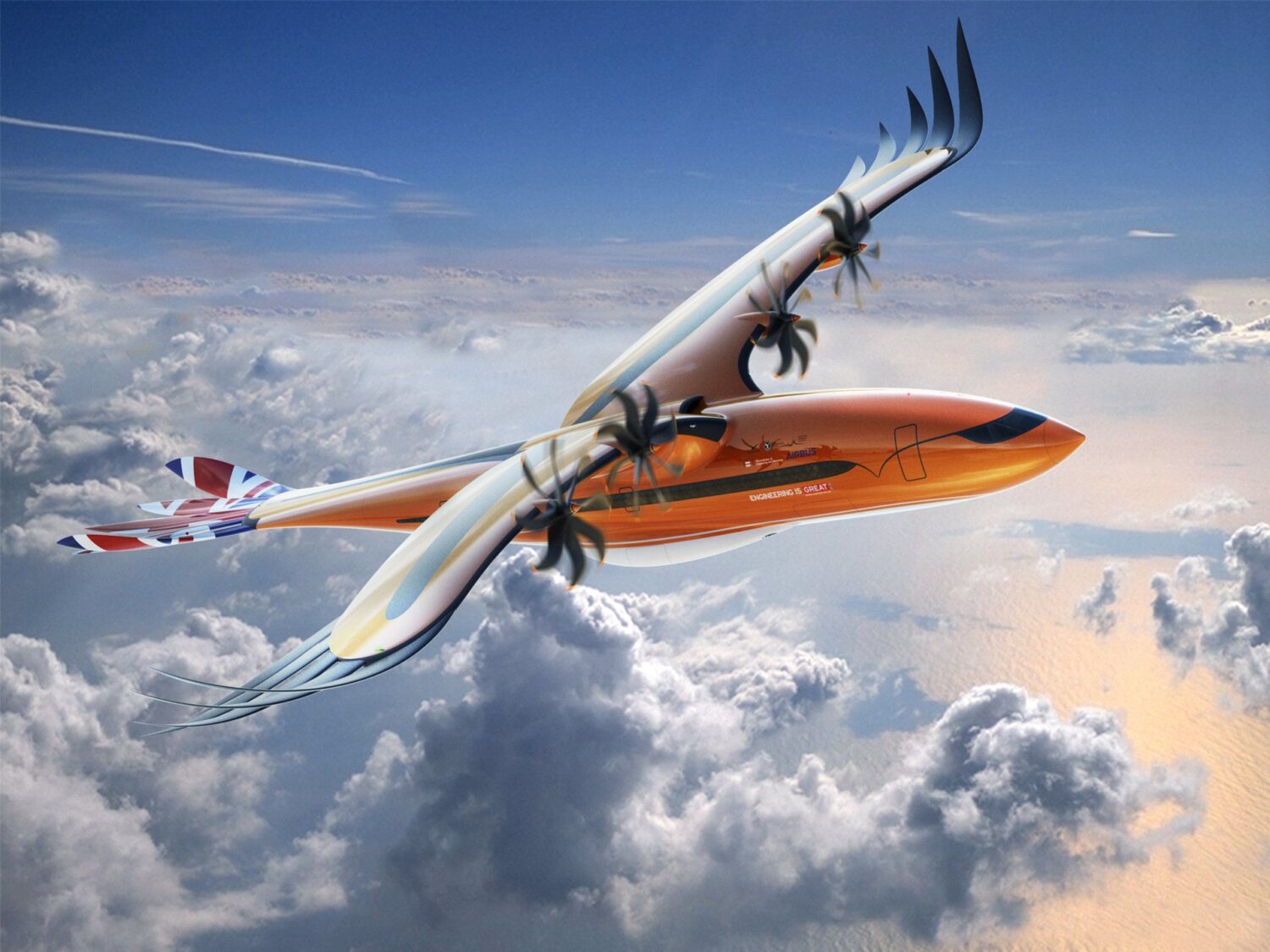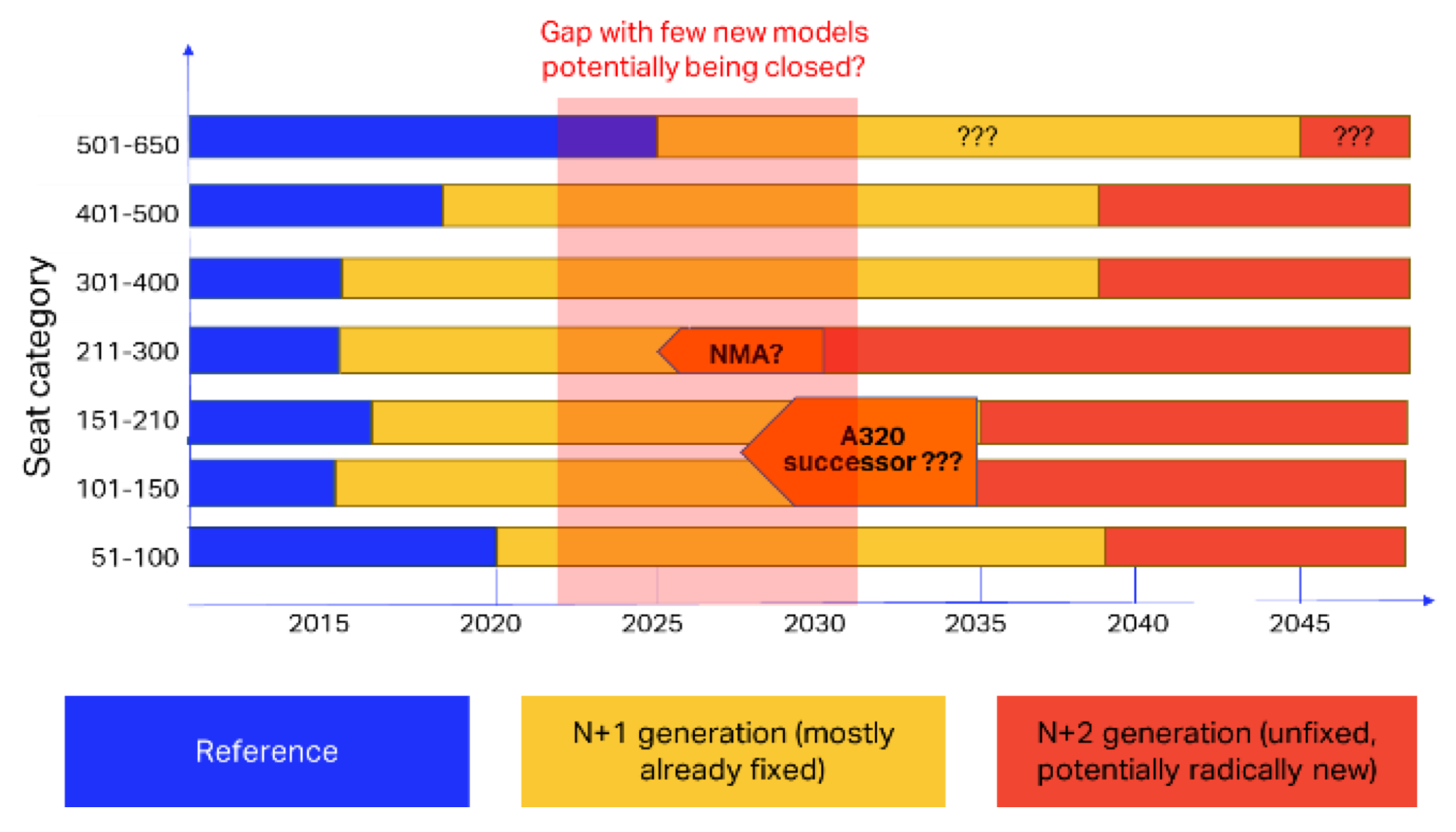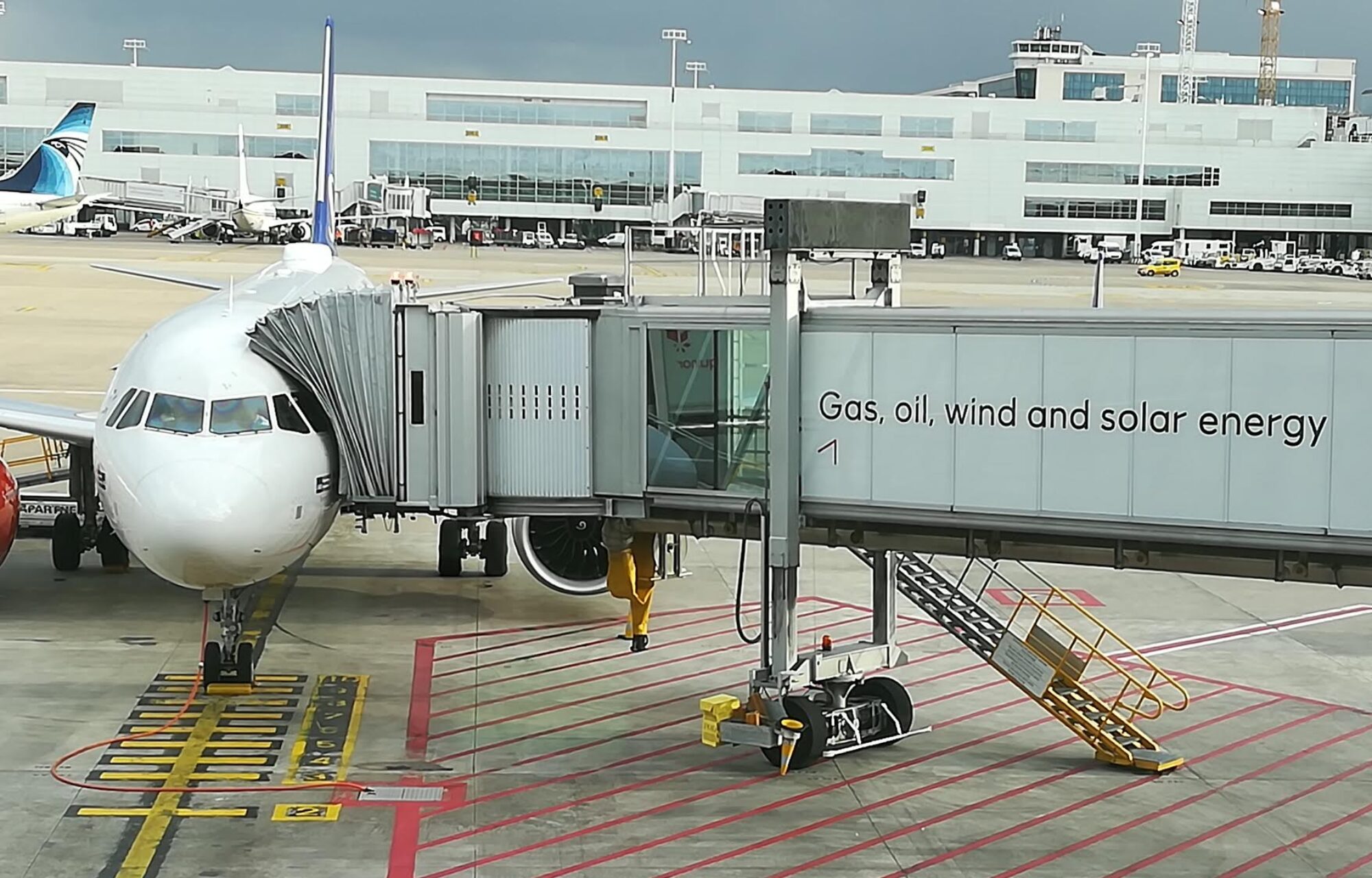Aviation needs revolutionary technologies quickly to curb CO2 emissions. However, these get delayed by cheap kerosene
1. International Air Transport Association (IATA), the association of the world’s airlines, sees an urgent need for revolutionary new aircraft designs

„Each new generation of aircraft yields a typical 15% fuel efficiency improvement compared to the generation it replaces. This replacement occurs on average every 20 years, although smaller serial improvements and retrofits occur in the intervening period.”
IATA Technology Roadmap for Environmental Improvement Fact Sheet
“The potential of these evolutionary technologies, … , will however diminish over the years. Evolutionary technologies will thus not be enough to keep a similar CO2 emissions reduction rate as today and contribute significantly to the 2050 CO2 emissions reduction goal, more radical configuration changes will be required in addition. In the period between the early 2020s and the early 2030s, there are currently no concrete announcements for new aircraft programs … Although new technologies are expected to reach maturity …, they could be prevented from implementation due to the lack of new aircraft programs. Furthermore, fleet renewal might also become less attractive if no brand-new fuel-efficient aircraft are available.“ IATA Aircraft Technology Roadmap Report
2. Without a change in politics, aircraft’s fuel efficiency will not improve over the next 20+ years!
 Expected sequence of future aircraft generations in different seat categories, including recent indications on new developments. IATA Aircraft Technology Roadmap Report:
Expected sequence of future aircraft generations in different seat categories, including recent indications on new developments. IATA Aircraft Technology Roadmap Report:
Above gap, has just widened because Boeing CEO dismisses major new commercial product launches amid pandemic uncertainty and Airbus and Rolls-Royce cancel E-Fan X hybrid-electric RJ100 experiment. The current aircraft types will rule the air uncontested for at least 20 more years unless politics rises the costs for kerosene dramatically!
3. Aviation holds on to outdated technology unduly long due to the cheapness of kerosene
As it stands today, no new aircraft will enter the market during the coming 20+ years. This will make the world’s airliner fleet the oldest ever. Never before where older planes flying in such fast numbers. Long range aircraft Airbus A330 and Boeing 777 date back technologically to the early 1990. Short and medium range aircraft Airbus A320 and Boeing 737 date back to the 1980 and 1960. The later got updated in 1990 and it’s successor, the 2011 envisioned Boeing 737max is currently grounded. Of the 20,000+ airliners currently registered, 18,000 were designed more than 30 years ago. Without a strong political stimulus, these aircraft will still fly in 20+ years from now! By this, aviation falls technologically way behind other means of transport.
4. Aviation is therefore expected to contribute considerably to the world’s CO2 emissions by 2050:
With past technologies, aviation achieved emission savings of 1% annually. (Newer generations of airplanes use 20% less fuel and replacement occurs every 20 years). However Aviation grew annually by 5,5% from 1950-2019, see: Is Aviation the next CORONA?
Without revolutionary new aircraft designs, aviation’s emission grow exponentially! Aviation‘s share in the worlds emissions of CO2 will grow even more, as other polluters reduce their emissions. Aviation needs newer, radically more fuel efficient airplanes fast! IATA Technology Roadmap for Environmental Improvement Fact Sheet

One Reply to “Revolutionary aircraft technologies are delayed”